Apr 2, 2024 12:59 PM
Saxophonist, Sonic Explorer Casey Benjamin Dies at 45
Casey Benjamin, the alto saxophonist, vocalist, keyboardist and producer who stamped his distinctive sounds on the…
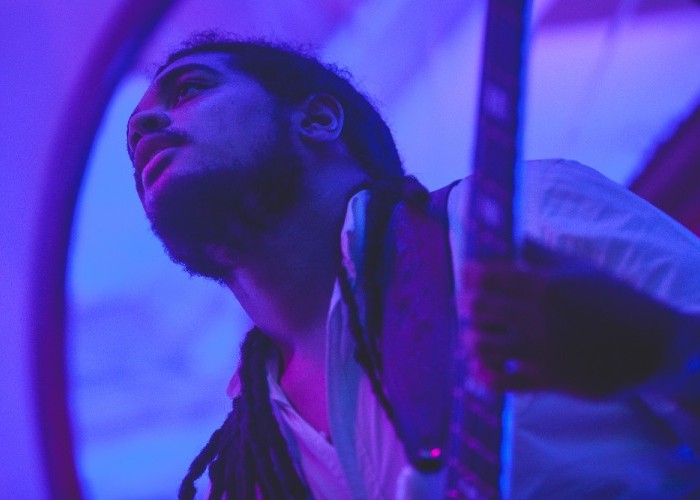
South African bassist and composer Benjamin Jephta recently issued The Evolution Of An Undefined (Self Release), a follow-up to his 2015 debut as a leader.
(Photo: Dinho Lima)“I grew up in the church. My dad was not a pastor, but he played a vital role there; I guess you can say that he was an elder. We are heavily church-going people,” bassist and composer Benjamin Jephta said of his upbringing.
The Cape Town born-and-bred maverick recently completed a South African tour in support of his sophomore album, The Evolution Of An Undefined (Self Release). Musically, a departure from 2015’s Homecoming, this new recording plays like contorted sketches from the notepad of an artist hell-bent on defining a sound and identity of his own. Yet, it’s a sound that brandishes remnants of the jazz tradition.
Jephta spoke with DownBeat in Johannesburg about his early musical influences, how collaborations have changed his compositional approach and streaming his music.
The following has been edited for length and clarity.
Growing up, was Abdullah Ibrahim a big influence?
Not as much as you think, being a colored person from Cape Town. At the time, I grew up listening to smooth jazz, because my dad was into that. I wasn’t that exposed to the Cape jazz scene. By that time, Abdullah had left, but he came from it. I grew up listening to gospel and smooth jazz.
Were you active in the church band?
I didn’t really play in the church that much. When I started getting into music, especially jazz and stuff, my dad wanted to shield me from church people. So, he did not want me to be on the bandstand, because he didn’t want people talking stuff. He supported me all the way.
It’s only later on, when I was probably at university, that our piano player left, and then I started playing piano at church. Me doing that kind of sparked my first album, Homecoming, because I was checking out a lot of piano and church vibes.
You play with the pianist Kyle Shepherd as part of the Claude Cozens Trio. The album you cats released—2014’s Jubileejam (Self Release)—has a lot of that church sound going for it. Can you speak about how that link-up happened?
I went to high school with him. Besides that, our families are friends through the church. We would often jam together. He was 2 or 3 years ahead of me in school, so he went to university first. And then he went to Norway for a bit. When he came back, he wanted to start a band. Him and Kyle were friends from school days, so [Kyle] became a part of that too, eventually. That whole thing for me was new.
I was so used to structure; this chord is this, this groove is this. And Claude is so open, he’s open with time. It was a new thing for me. In the beginning, I was just playing my part, trying to keep up with the guys. Playing in that band influenced my playing and my composition techniques. I had to let go, free it up a little bit more and not worry about necessarily being right, but being together—where is Claude, where am I, what is Kyle feeling, and trying to be with them.
How did you go about assembling the music on Homecoming?
I started composing that music in my third year of university. Up until then, I was very much into electric vibes and groove-based, but more experimental than smooth. I’ll never forget, there was this one performance where I saw Christian Scott aTunde Adjuah play at the Cape Town International Jazz Festival with his old sextet. It was the first time I’d ever heard of him. I’d never thought double bass could be so rock star. And then I wanted to start an acoustic jazz project. That sparked my interest in a more acoustic approach to the music.
What was your headspace at that time?
I was frustrated that we were not exposed to a lot of local jazz music; I didn’t know these things that people were talking about. I started checking out some music, and I also wanted to document my thoughts about music and where I was at the time—growing up through the church, on the Cape Flats, but also coming through a university institution. I wanted to take tools from everything and give people an idea of who I was at the time.
What did that album do for you?
Musically, it put me on the path of always incorporating who I am in the music—and also constantly evolving. That sparked compositions that came out on my new album and that are going to come out in the future. In the greater scheme, people started listening to my music. It got some award nominations and got me traction.
What happened between 2015 and now?
I moved up to Johannesburg around the time that album came out. I was very much affected by what was happening here, just the general vibe of the city. My music started getting more affected by the culture of the city, and me being young, I got influenced by genres associated with young people—like the hip-hop scene and the electronic scene. I started playing with different bands, which affected the way I compose.
How did the new album come about?
I had different ideas of what I wanted. At first, it was gonna be a double album, with acoustic and electronic sides. And then it just became both. Then I wasn’t happy with the way it was sounding, I still had to put it together, and I wasn’t sure what the vibe was. I like to listen to music in the car, so I kept burning the songs onto CD in different orders.
One day, I was driving to a gig and then I was like, “OK, we’re getting somewhere now.” The flow of songs really matters to me. I felt like I got that right on the Homecoming album. The compositions on this album draw from so many things, but I think I got it close enough to where it can be listened to from beginning to end.
South African jazz musicians generally are averse to having their music available online. What are your thoughts and feelings when it comes to streaming?
I think that’s probably the way to go nowadays, especially for independent artists. I mean, we make some money selling [physical albums], and there are still a lot of people that want albums. But to push your shit online, and to get exposed to that larger audience, and also that instant access that people have to your shit ... . Overall, that’s a good thing. So, when you do live gigs, people are gonna come out because they know [the music]. A lot of record stores are gonna close soon; a lot of them are closing. It’s always been a thing for me, to try and get my album in a store. But I think maybe it’s not worth it at the end of the day. DB
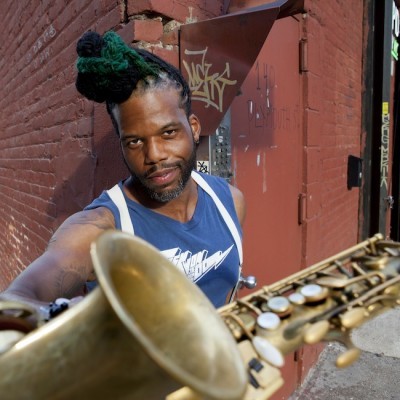
Benjamin possessed a fluid, round sound on the alto saxophone, and he was often most recognizable by the layers of electronic effects that he put onto the instrument.
Apr 2, 2024 12:59 PM
Casey Benjamin, the alto saxophonist, vocalist, keyboardist and producer who stamped his distinctive sounds on the…
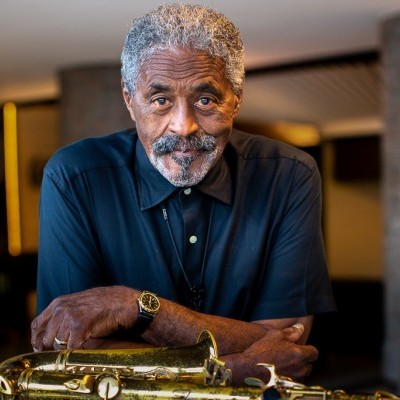
“He’s constructing intelligent musical sentences that connect seamlessly, which is the most important part of linear playing,” Charles McPherson said of alto saxophonist Sonny Red.
Feb 27, 2024 1:40 PM
“I might not have felt this way 30 to 40 years ago, but I’ve reached a point where I can hear value in what people…
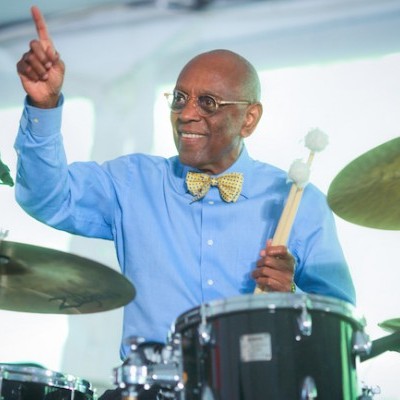
Albert “Tootie” Heath (1935–2024) followed in the tradition of drummer Kenny Clarke, his idol.
Apr 5, 2024 10:28 AM
Albert “Tootie” Heath, a drummer of impeccable taste and time who was the youngest of three jazz-legend brothers…
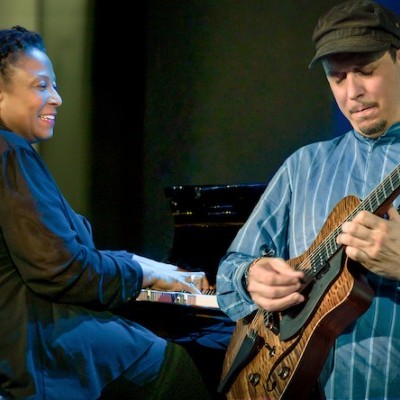
“Both of us are quite grounded in the craft, the tradition and the harmonic sense,” Rosenwinkel said of his experience playing with Allen. “Yet I felt we shared something mystical as well.”
Mar 12, 2024 11:42 AM
“There are a few musicians you hear where, as somebody once said, the molecules in the room change. Geri was one of…
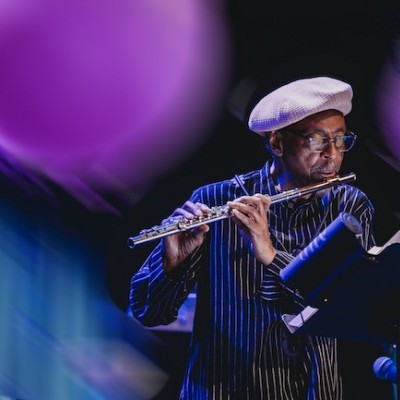
Henry Threadgill performs with Zooid at Big Ears in Knoxville, Tennessee.
Apr 9, 2024 11:30 AM
Big Ears, the annual four-day music celebration that first took place in 2009 in Knoxville, Tennessee, could well be…